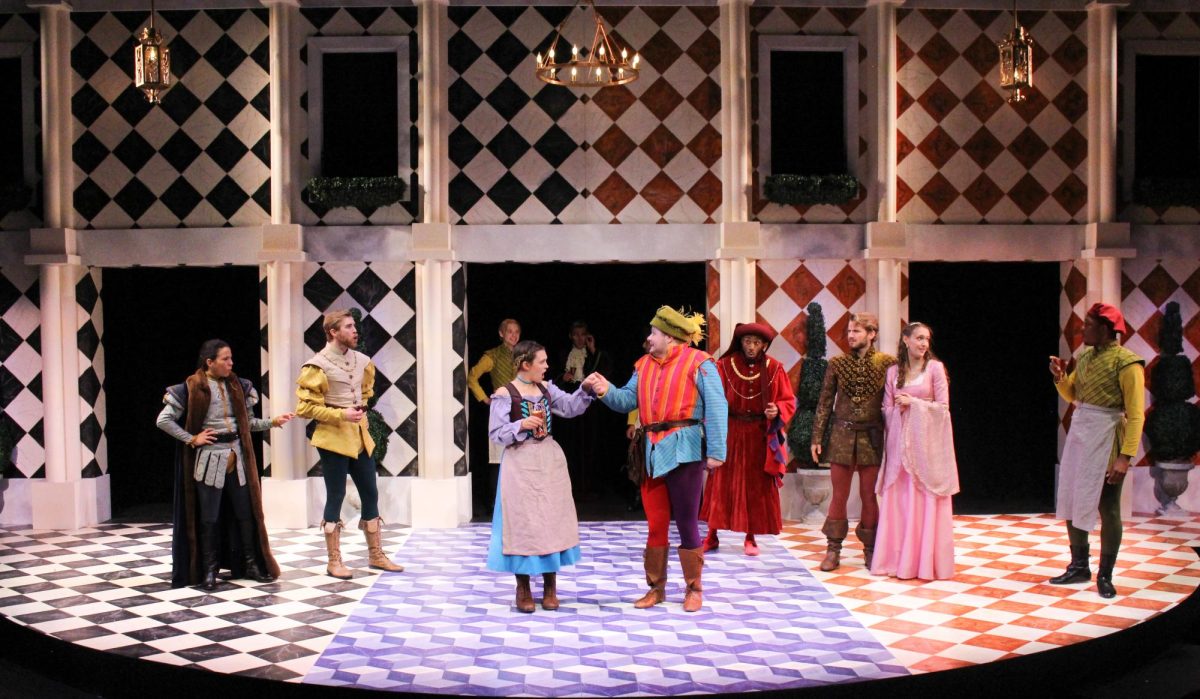Wolfgang Amadeus Mozart composed over 22 operas and vocal dramatic works during his lifetime in the 18th century. Most of these works followed the systematic form of the time, which defined an opera as one of quality. Expression and natural movement was highly scorned in these performances.
Over the weekend, Meadows Opera Theatre took on the challenge of transferring one of these works into the 21st century, putting on four performances of “Il Re Pastore” (The Shepherd King) in the Bob Hope Theatre.
The set and costume design was one of the methods used to update the show. A giant, smiling sun shone down on the stage, where the shrubbery was decorated with several giant pillows. The winsome set was complimented by the brightly colored costumes of the characters, including the sweater and bow ties of Conductor Paul Phillips.
Soprano Dee Donasco, a second-year graduate vocal performance student, was the only cast member who was not double-cast. Despite the high vocal range of her role as the shepherd king, Aminta, in Mozart’s time a boy would have sung it. But due to the outlawing of the custom of the castrati (I’ll let you look that up…), females are now cast in these roles and dressed as men. Thank goodness for this, as Donasco was allowed to shine through in her breath-taking performance as Aminta.
In the Thursday, Saturday shows, soprano Katrina Galka was another show-stealer with her delightful rendition of Eliza.
This was Galka’s first fully staged opera role and she was the only female undergrad in the show. She kept up gracefully with her more experienced cast mates.
The work was the collaborative effort of several departments in Meadows, with several music performance students in the orchestra pit. This added an extremely professional touch to the show.
Even Mozart was aware that the story used for this show was trite and over-produced, as it had already been set to music about a dozen times by the time he was hired to do so in 1775.
Meadows embraced the cute, clichéd feeling of “Il Re Pastore,” and that may be why their production was a success.
The show gave the audience plenty to cheer for between the talent onstage and in the pit, and the feel-good manner in which the show was presented.








